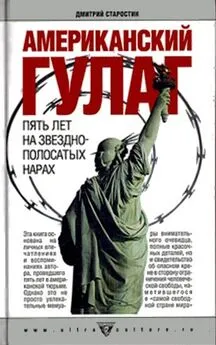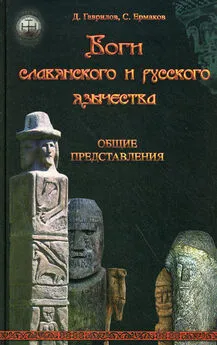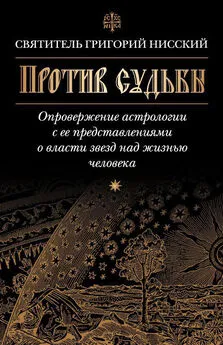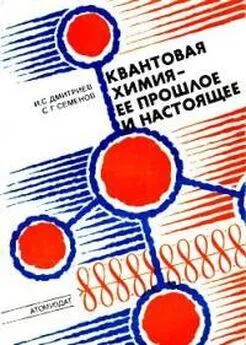Дмитрий Старостин - Между Средиземноморьем и варварским пограничьем [Генезис и трансформация представлений о власти в королевстве франков]
- Название:Между Средиземноморьем и варварским пограничьем [Генезис и трансформация представлений о власти в королевстве франков]
- Автор:
- Жанр:
- Издательство:Центр гуманитарных инициатив
- Год:2017
- Город:СПб.
- ISBN:978-5-98712-771-1
- Рейтинг:
- Избранное:Добавить в избранное
-
Отзывы:
-
Ваша оценка:
Дмитрий Старостин - Между Средиземноморьем и варварским пограничьем [Генезис и трансформация представлений о власти в королевстве франков] краткое содержание
Книга адресована историкам-медиевистам и широкому кругу читателей.
Между Средиземноморьем и варварским пограничьем [Генезис и трансформация представлений о власти в королевстве франков] - читать онлайн бесплатно полную версию (весь текст целиком)
Интервал:
Закладка:
Van Dam R. Images of in Late Roman and early Merovingian Gaul // Viator. 1988. Vol. 19. P. 1–27.
Van Dam R. Saints and Their Miracles in Late Antique Gaul. Princeton, 1993.
Van de Vijver A. La victoire contre les alamans et la conversion de Clovis en 506 // Revue belge de philologie et d’histoire. 1936. Vol. 15. P. 859–914.
Van de Vijver A. La victoire contre les alamans et la conversion de Clovis en 506 // Revue belge de philologie et d’histoire. 1937. T. 16. P. 35–94.
Van de Vyver A. L’unique victoire contre les Alamans et la conversio de Clovis // Revue belge de philologie et d’histoire. 1938. T. 17. R 793–813.
Verlinden C. Lesclavage dans l’Europe medievale. Brugge, 1955.
Viollet P. Histoire des institutions politiques et administratives de la France: en 3 t. P., 1890.
von den Steinen W. Chlodwigs Ubergang zum Christentum: Eine quellenkritische Studie. Darmstadt, 1963.
Waitz G. Deutsche Verfassungsgeschichte. Kiel, 1876. Bd. 7. Die deutsche Reichsverfassung von der Mitte des neunten bis zur Mitte des zwölften Jahrhunderts.
Wallace-Hadrill J.M. The Fourth Book of the Chronicle of Fredegar; With Its Continuations. L., 1960.
Wallace-Hadrill J.M. The Long-haired Kings, and Other Studies in Frankish History. N.Y., 1962.
Wattenbach W., Traube L. Deutschlands Geschichsquellen im Mittelalter bis zur Mitte des dreizehnten Jahrhunderts. Stuttgart, 1904.
Wattenbach W., Levison W. Deutschlands Geschichsquellen im Mittelalter. Stuttgart, 1952. Bd. 1. Vorzeit und Karolingern. H. 1. Die Vorzeit von den Anfangen bis zur Herrschaft der Karolinger.
Weidemann M. Bischofherrschaft und Königtum in Neustrien vom 7 bis zum 9 Jahrhundert am Beispiel des Bistums Le Mans // La Neustrie: Les pays au nord de la Loire de 650 à 850 / Hrsg. von H. Atsma. Sigmaringen, 1989. S. 161–193. Bd. 1.
Werner K.F. Les principautés périphériques dans le monde franc du VIII-e siècle // Settimane di studio del Centro italiano di studi sull’alto medioevo. T. 20.1 problemi dell’Occidente nel secolo VIII. Spoleto, 1972. P. 483–514.
Werner K.F. Les Origines. P., 1984.
Werner K.F. De Childéric à Clovis: antécédents et conséquences de la bataille de Soissons en 486 // Revue archéologique de Picardie. 1988. T. 3–4. № 1. P. 3–7.
Werner K.F. La “conquête franque” de la Gaule: Itinéraires historiographiques d’une erreur // Bibliothèque de l’ecole des chartes / Sous la dir. d’O. Guyotjeannin. 1996. T. 154. № 1. Clovis chez les historiens. P. 7–46.
Werner M. Der Lütticher Raum im frühkarolingische Zeit: Untersuchung zur Geschichte der karolingische Stammlandschaft. Gottingen, 1979.
White S.D. Custom, Kinship, and Gifts to Saints: The “Laudatio Parentum” in Western France, 1050–1150. Chapel Hill, 1988.
Wood I.N. The “Vita Columbani” and Merovingian Hagiography // Peritia. 1982. Vol. 1. P.63–80.
Wood I.N. The Ecclesiastical Politics of Merovingian Clermont // Ideal and Reality in Frankish and Anglo-Saxon Society: Studies Presented to J.M.Wallace-Hadrill / Ed. by P. Wormald, D. BuUough, R. Collins. Oxford, 1983. P. 34–57.
Wood I.N. Gregory of Tours and Clovis // Revue belge de philologie et d’histoire. 1985. Vol. 63. P. 249–272.
Wood I.N. The Code in Merovingian Gaul // The Theodosian Code: Studies in the Late Imperial Law of Late Antiquity / Ed. by J. Harries, I. Wood. L, 1993. P. 161–177.
Wood I. N. The Merovingian Kingdoms (450–751). L. 1994.
Wood I.N. Defining the Franks: Frankish Origins in Early Medieval Historiography // Concepts of National Identity in the Middle Ages / Ed. by S. Forde, L. Johnson, A.V. Murray. Leeds, 1995. P. 47–57.
Wood I.N. The Use and Abuse of Latin Hagiography in the Early Medieval West // East and West: Modes of Communication. Proceedings of the First Plenary conference at Merida / Ed. by E. Chrysos, I. Wood. Leiden, 1999. P. 93–109.
Wormald P. Lex Scripta and Verbum Regis: Legislation and Germanic Kingship, from Euric to Cnut 11 Early Medieval Kingship / Ed. by P.H. Sawyer, I.N. Wood. Leeds, 1977. P. 105–138.
Zanella G. La legittimazione del potere regale nelle “Storie” di Gregorio di Tours e Paolo Diacono // Studi medievali. Serie 3. 1990. Vol. 31. P 55–83. _
Zeller J. Entretiens sur l’histoire du Moyen Âge. P., 1893. T. 1. Partie 1.
Zôllner E. Die Herkunft der Agilulfinger // Mitteilungen des Instituts für österreichesche Geschichtsforschung. 1951. Jg. 59. S. 245–264.
Блок M. Короли-чудотворцы. Очерк представлений о сверхъестественном характере королевской власти распространенных преимущественно во Франции и Англии. М., 1998.
Блок М. Феодальное общество. М., 2003.
Гизо Ф. О характере Салического закона // История Средних веков / Под ред. М.М. Стасюлевич. СПб., 1999. С. 324–325.
Казанский М.М., Перен П. «Королевские» и «вождеские» погребения раннемеровингского времени в Галлии: состояние исследований // Краткие сообщения института археологии. 2014. № 234. С. 262–286.
Коньков Д.С. Готы на территории Римской империи: трансформация этно-потестарной идентичности. Северск, 2011.
Коньков Д.С. Трансформация социальных связей в Аквитании в ходе формирования Вестготского королевства // Вестник Кемеровского государственного университета. История. 2013. Т. 3, 2 (54). С. 76–80.
Корсунский А.Р. Образование раннефеодального государства в Западной Европе. М., 1963.
Неусыхин А.И. Дофеодальный период как переходная стадия развития от родоплеменного строя к раннефеодальному // Вопросы истории. 1967. № 1. С. 75–87.
Неусыхин А.И. Дофеодальный период как переходная стадия развития от родо-племенного строя к раннефеодальному. (Тезисы доклада) // Средние века. 1968. Т. 31. С. 45–48.
[Рец. на:] Рассказы о временах Меровингов. Сочинение Огюстена Тьерри. СПб., 1848 // Отечественные записки: Раздел VI. Библиографическая хроника. 1848. Т. 58. № 56. С. 18.
Савукова В.Д. История франков как литературный памятник // Григорий Турский. История франков. М., 1987.
Санников С.В. Образы королевской власти эпохи Великого переселения народов в западноевропейской историографии VI века. Новосибирск, 2011.
Старостин Д.Н. Между Античностью и Средневековьем: судебные протоколы меровингского времени и их роль в развитии раннесредневекового правосознания // IVS ANTIQWM (Древнее право). 2005. Т. 15. С. 120–134.
Тьерри О. О характере германских завоеваний Галлии и состояние побежденных туземцев // История Средних Веков / Под ред. М.М. Стасюлевич. М., 1999. С. 297–310.
Тьерри О. Рассказы из времен Меровингов. СПб., 1892.
Тюленев В.М. Вступительная статья // Павел Орозий. История против язычников. Книги I–III. СПб., 2001.
Уколова В.И. Античное наследие и культура Раннего Средневековья. М., 1989.
Усков Н.Ф. Христианство и монашество в Западной Европе Раннего Средневековья: Германские земли II–III — середина XI в. СПб., 2001.
Филиппов И.С. Средиземноморская Франция в Раннее Средневековье. Проблема становления феодализма. М., 2000.
Циркин Ю.Б. «Генеральские государства» на территории Западной Римской империи // Мнемон: Исследования и публикации по истории Античного мира. Сборник статей к 80-летию со дня рождения проф. Э.Д. Фролова. СПб., 2013. Т. 12. С. 462–472.
Шкаренков П.П. Королевская власть в Остготской Италии по “Variae” Кассиодора: Миф, образ, реальность. М., 2003.
Шкаренков П.П. Римская традиция в варварском мире: Флавий Кассиодор и его эпоха. М., 2004.
Addressing the representations of the Merovingian kingdom in the narrative sources, hagiography, and legal records, this book seeks to examine the relationship between “fact” and “representation” in the Frankish history of the V to VIII centuries.
Taking for analysis the key events in the history of the merovingian Gaul, this study attempts to investigate the discordant aspects of their representation and to analyse the ways in which these incongruences or conflicts in representation are due to the limitations of discourses and narratives predicated on the sources’ genre. The book also investigates the ways in which differences in source genre may help explain the traditional and yet highly subjective chronological picture of the development of the Frankish kingdom over two and a half hundred years. Drawing parallels between the main events of particular periods, the sources and their authors, the study seeks to suggest that the traditional picture of the significant changes in the merovingian polity and infrastructure from the early, more successful period during the rule of Clovis (486/487–511) and Chlotar I (511–561) to the later, less successful one may be an aberration cause by the changes in literate culture, in the types of documents and in the specific perspective of authors and scribes composing the documents rather than by objective causes. Thus in this book I attempt to show how the historical sequence of traditional Late Antique narrative histories (Gregory of Tours, Fredegar, “Liber Fhstoriae Francorum”), of hagiography (Vita Balthildis reginae etc.) and of the charters and royal responses to litigation determined the image of each of the periods. At the same time, I argue that despite the emphasis on differences that scholars have sought to emphasize in describing each of the periods there is a great deal of continuity between the earlier and later part of the Merovingian’ reign, if one can divert from the traditional narrative account of military victories and royal control over territories and domains and look instead at the mechanisms of soft power that underlay the rule of the Frankish kings. The book argues that if one eliminates the bias of portraying particular historical periods that had originated because of the difference in the approach provided by sources, one wIII see a relatively homogenous narrative which used the same clichés, or rather, archetypes, both for the times of Clovis, his sons and grandsons and for the times of Clovis II and his progeny with Balthild. Central to this stroppeddown narratives were the ideas of the Franks’ integration into the Mediterranean culture and into the system of threepartite representation of authority which had been common to it since Caesar and Tacitus. Regardless of their origin, the writers of histories, authors of saints’ lives and the scribes who put together royal responses to tough legal cases all thought of the king as the peacemaker and an intermediary who was supposed to incorporate military prowess, sacrality of both the rex and of the priest, and the special status of the judge which in their case originated from the Roman emperors’ role in adjudicating conflicts by means of rescripts.
Читать дальшеИнтервал:
Закладка:
![Обложка книги Дмитрий Старостин - Между Средиземноморьем и варварским пограничьем [Генезис и трансформация представлений о власти в королевстве франков]](/books/1100074/dmitrij-starostin-mezhdu-sredizemnomorem-i-varvars.webp)






![Марк Блок - Короли-чудотворцы [очерк представлений о сверхъестественном характере королевской власти, распространённых преимущественно во Франции и в Англии]](/books/1088174/mark-blok-koroli.webp)

